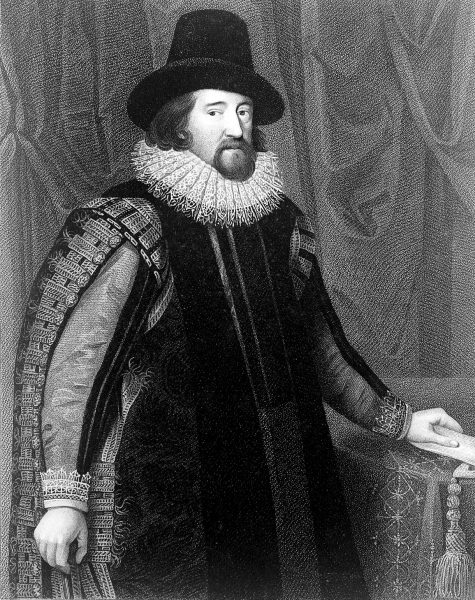The Scientific Revolution

Francis Bacon (image from the Wellcome Collection, reproduced under a CC-BY licence).
The founders of the Royal Society were inspired by the ideas of the ‘Scientific Revolution’. The Scientific Revolution took place throughout Europe towards the end of the Renaissance and continued into the Enlightenment. The ideas behind the ‘Scientific Revolution’ were first laid out by the Elizabethan philosopher Francis Bacon. Bacon argued that all science should be based on experimentation and observation. Followers of his approach tried to discover scientific laws to give humans more power over nature.
The Scientific Revolution prompted developments in biology, chemistry, physics, mathematics and astronomy. Some of the most famous discoveries of the Scientific Revolution included Copernicus’s theory that the planets orbited the sun and Galileo’s telescope which he used to observe Jupiter’s moons. The principles of the Scientific Revolution were also important in the history of medicine. Doctors such as William Harvey and Thomas Sydenham, who had served in the Civil Wars, followed the principles of experimentation and observation. Other doctors who had served in the Civil Wars, such as William Petty and Thomas Willis, were founder members of the Royal Society.
